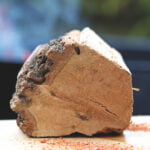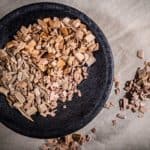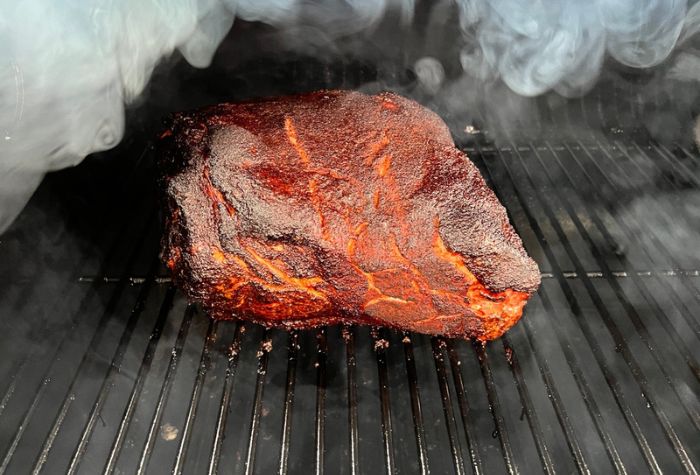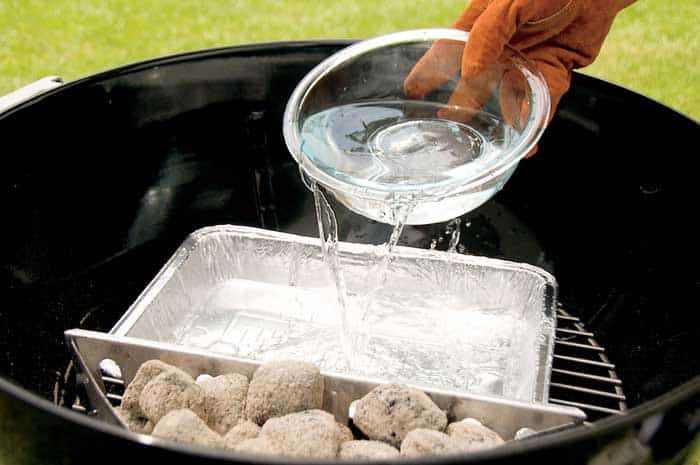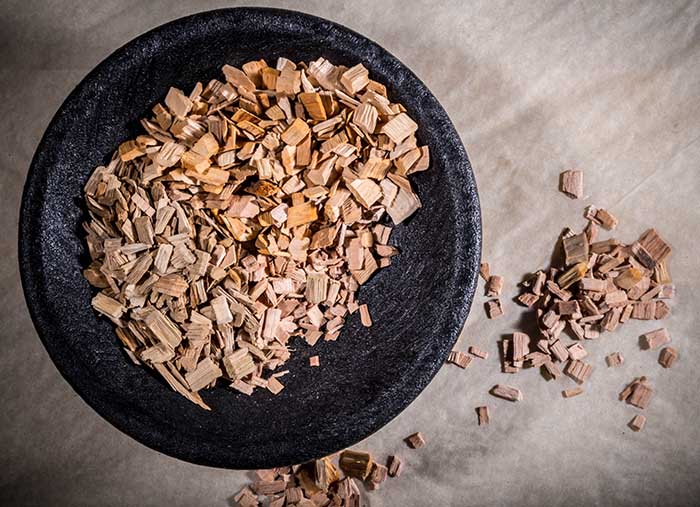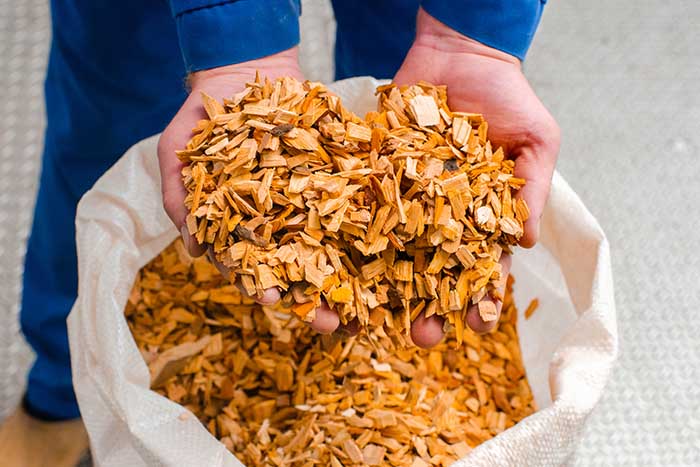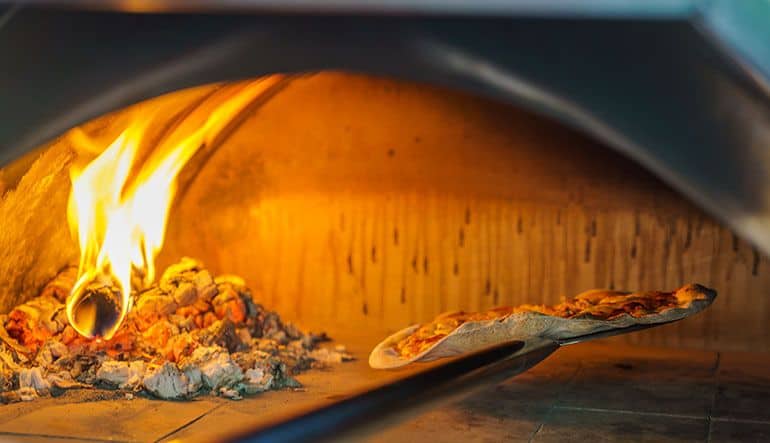Why you should stop soaking wood chips for smoking. Everything you need to know about water absorption, smoldering, heat-up time, and more.
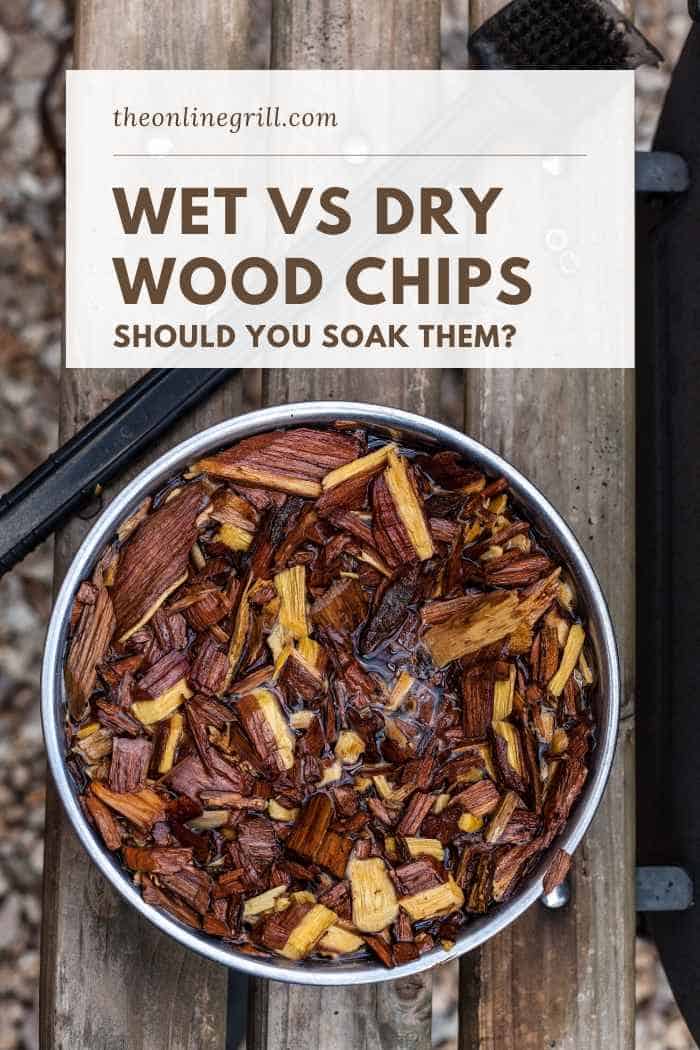
Wood chips help form the basis of any good smoking cook-off, but one debate that never seems to go away is whether or not you should soak your wood chips before smoking.
This wet wood vs. dry wood debate is one that has raged on for ages. However dispute the conventional wisdom being that you should bathe them in water prior to smoking, this is nothing but a dated myth.
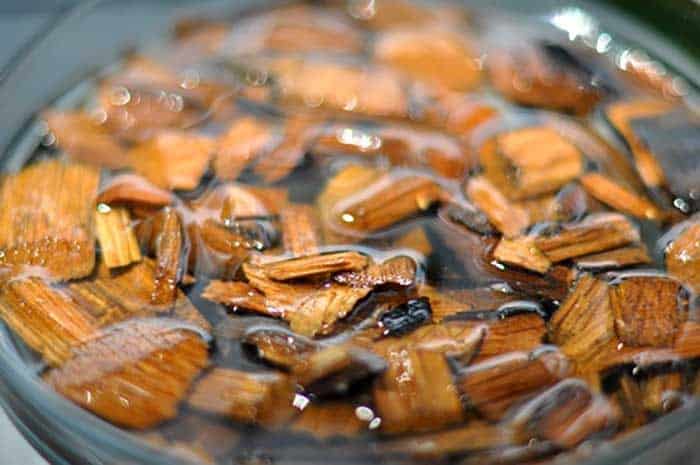
So whether you’re new to BBQ smoking or a more seasoned pitmaster, it’s important to discard this myth.
Not convinced? Here are a few reasons why you should do away with the water and start using dry wood chunks only.
Wood chunks don’t absorb much water
Believe it or not, studies show that solid chunks of wood absorb very little water, even after hours of soaking.
Cross sections of various hardwood species of wood chunk indicate minimal penetration beyond the surface layer and only slightly more water absorption in cracks and crevices. Wood chips do take on more water because of their large surface area.
Much of the proof of this lies in how the chips are affected after soaking in food coloring.
Amazing Ribs ran a study looking at how far different types of wood chunks were penetrated when soaked in a mix of water and blue food coloring for 24 hours.
This is a lot longer than conventional wisdom says, so any effects noted in the experiment should be more significant than what we would normally see with water.
The study found that the water-coloring mix only just made its way through the surface of each chunk, and only worked its way into where cracks or fissures had already occurred. Every other area of the wood was bone dry.
If this is the effect after a full 24 hours, then what do you hope to achieve with the 1-2 hours normally recommended in BBQ smoking books?
Water interferes with smoldering
When you put wet wood on a grill or smoker, it doesn’t start smoldering immediately. In fact, what you’re witnessing is the water evaporating at 212ºF (boiling point) and turning into steam. Only once the moisture has completely evaporated will the wood chunk heat up to the point where it can produce smoke and impart flavor to your food.
This kills off the theory that wet wood gives you a longer smoke. If the wood is steaming, it isn’t smoking.
Got an electric smoker? Find out if you should soak wood chips for an electric smoker.
Soaked chips can interfere with charcoal smoking
This is just common sense. If you put wet wood into your grill or smoker chamber, then any excess water is going to cool the coals. BBQ smoking is all about precise temperature control, and you simply can’t do this if your coals are interfered with. Having dry wood helps us keep everything nice and steady.
If you’re using a charcoal cooker, soaked wood can smother the fire and reduce the heat. With temperature control being a crucial part of smoking, you’re unlikely to want any interference.
Soaked chips don’t heat up faster
Many pitmasters soak wood chips because they tend to burn up in a heartbeat. Experts suggest that you place dry chips in a foil packet and then poke holes in it to release the smoke. This workaround not only prevents the chips from catching fire, but it also improves the quality of the smoke.
Does soaking wood chips have any benefits?
If you enjoy wood cooking, you’ll want to soak the wood for a few hours before placing it over the heat. Although the plank won’t absorb much water, the moisture will prevent the wood from catching fire and incinerating your food. If you forget to soak, you could find yourself facing a relatively expensive mistake and calling for takeout.
While the debate will probably always be around, in the end we all just want to create a clean-burning fire that’s thin, blue, and almost invisible.
For me, there just isn’t enough evidence to warrant spending hours soaking your chips. It’s an unnecessary step that creates more work than it deserves.
Wood needs to be dry for it to smoke rather than steam, so you’re essentially wasting time and oxygen with soaking.




